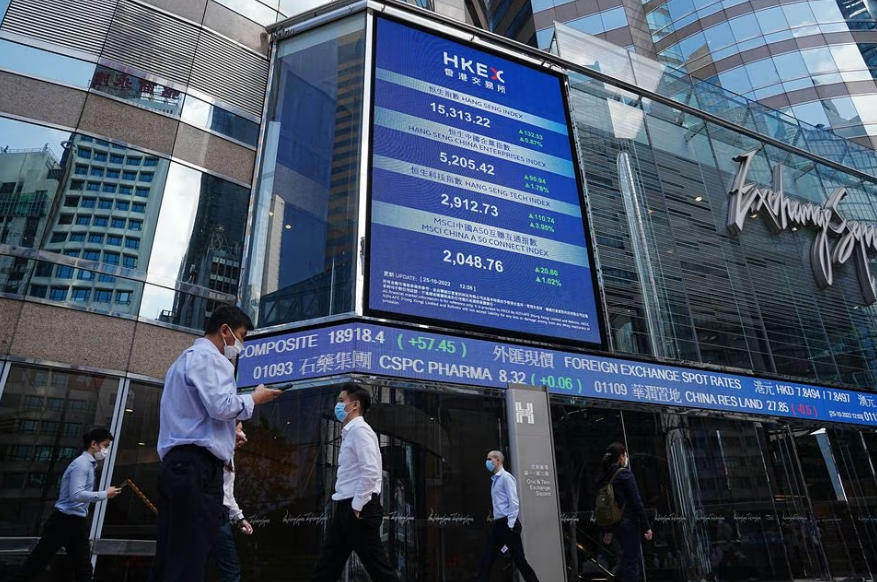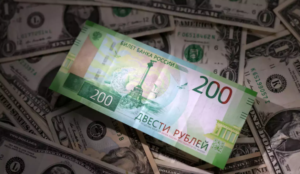Hong Kong stocks experienced a significant decline upon traders’ return from an extended weekend due to rising US Treasury yields, which negatively impacted market sentiment. The Hang Seng Index dropped by 2.7 percent to reach 17,331.22 on Tuesday, erasing all the gains made on Friday and trading near an 11-month low. The Hang Seng Tech Index also decreased by 2.6 percent. It’s worth noting that mainland Chinese markets were closed for the 10-day “golden week” holiday.
Key companies in Hong Kong faced losses, with Tencent Holdings falling 1.8 percent to HK$300.60, Alibaba Group losing 2.9 percent at HK$83.10, JD.com retreating by 3.2 percent to HK$111.40, and local property firms like New World Development sinking 5.2 percent to HK$14.44, Henderson Land dropping 5.1 percent to HK$19.60, and Sun Hung Kai Properties losing 3 percent to HK$81.30.
In contrast, troubled property developer China Evergrande saw a significant surge, rising as much as 42 percent to 46 Hong Kong cents per share when it resumed trading on Tuesday. However, it later closed up 15.6 percent at 37 Hong Kong cents. This surge followed a trading halt last week after its billionaire founder was placed under police control due to suspicion of undisclosed crimes.
Increasing borrowing expenses continued to have a negative impact on market sentiment. The 10-year US Treasury yield, which serves as a benchmark for corporate bonds, climbed to 4.699 percent during Asian trading hours, reaching its highest point since 2007. Concurrently, the US dollar index reached its highest level since November.
Some analysts believe that the recent increase in US Treasury yields may not be a lasting trend, especially in the face of an impending economic slowdown. Capital Economics, for example, predicts that the US Federal Reserve will aggressively reduce interest rates next year, contrary to the prevailing belief of “higher rates for a longer period.” They anticipate a modest short-term economic improvement due to increased policy support in China but highlight structural factors like demographics and global challenges that make a sustained turnaround unlikely.
The Hang Seng Index has experienced a significant decline of 5.9 percent over the past three months, following a 7.3 percent loss in the second quarter. In addition, overseas investors have sold a record $17.5 billion worth of A shares (yuan-denominated shares of Chinese companies traded in domestic markets) in the past two months, reducing the net inflow for the year to $16.2 billion. Global funds now have their lowest exposure to China in a decade, according to Goldman Sachs.
In contrast, other major Asian markets showed mixed performance, with Australia’s S&P/ASX 200 declining by 1.3 percent, Japan’s Nikkei 225 Index dropping 1.6 percent, and South Korea’s Kospi edging up by 0.1 percent.
(Source: Jiaxing Li | South China Morning Post)









